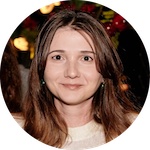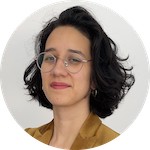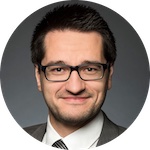
Berkman Klein Center Announces Incoming 2022-2023 Fellows
The Berkman Klein Center for Internet & Society at Harvard University is pleased to announce incoming fellows for the 2022-2023 academic year. They are an exceptional group who will cover topics ranging from human rights and the impact of migration technologies, to security researcher protection and pandemic-era knowledge access.
"We are thrilled to welcome this wonderful class of fellows to BKC as we invigorate the Center as a physical meeting point for impact and engagement," said Sue Hendrickson, BKC Executive Director. "Their amazingly diverse expertise will help drive new inquiry, build connections, and foster consequential conversations about the most vexing and inspiring challenges in our field."
“For more than twenty years, a Berkman Klein fellowship has spurred its recipients to ask big, concrete questions about what technology is doing to us, and whether and how it should be shaped,” said BKC co-founder Jonathan Zittrain. “BKC offers a lively community designed around unexpected, productive encounters with people also working in the public interest, often from very different perspectives and methods."
Incoming fellows are joined by faculty associates and affiliates with experience working in companies, organizations, and academic institutions around the globe. These community members form and strengthen the bonds of the growing BKC network of people who bring a broad range of backgrounds, expertise, and perspectives.
Rebecca Tabasky, BKC Director of Community, noted, “This moment calls upon us to be in solidarity with one another as we work: to illuminate and make different paths visible, to help clear the way and ease the road in one another’s paths, and to find the paths that can and do and must converge. It is our privilege to host the fellows as they take steps together through the coming year.”
The BKC fellowship program aims to create a protocol, a culture, a spirit that puts the emphasis on being open, being kind, being good listeners, being engaged, and being willing to learn from one another.
Joining the community as 2022-2023 Berkman Klein fellows on September 1, 2022:








The Berkman Klein Center for Internet & Society at Harvard University is dedicated to exploring, understanding, and shaping the development of the digitally-networked environment. A diverse, interdisciplinary community of scholars, practitioners, technologists, policy experts, and advocates, we seek to tackle the most important challenges of the digital age while keeping focus on tangible real-world impact in the public interest. Our faculty, fellows, staff, and affiliates conduct research, build tools and platforms, educate others, form bridges and facilitate dialogue across and among diverse communities. More information at cyber.harvard.edu.